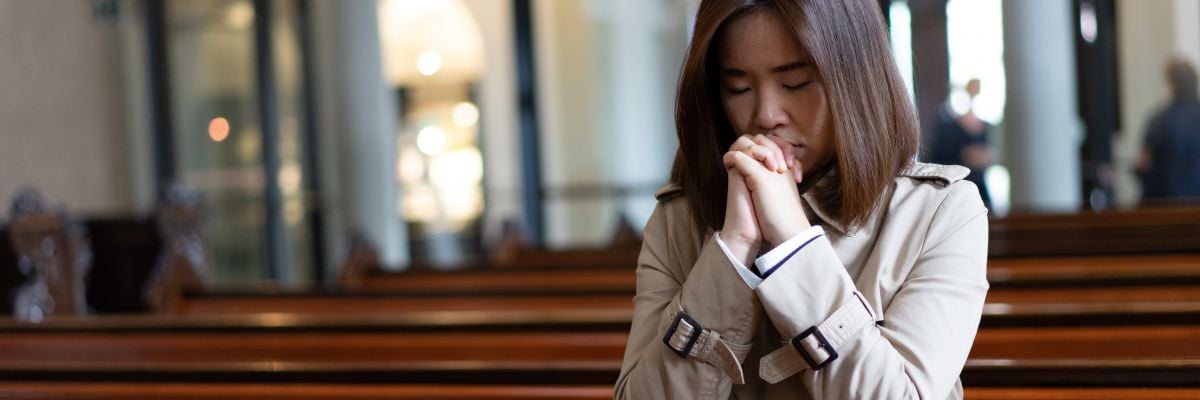
In this excerpt from his new booklet, 20 Answers: Conversion, Shaun McAfee shares both consolation and advice with his fellow converts to the Catholic faith, especially those still finding their footing in the Church.
Just as there are common challenges that converts often face, so too are there common pitfalls that can threaten our new faith.
A big one involves the imperfections in the people of the Church—that is, not learning to deal with the Church’s faults, especially the faults of the clergy. When asked how to deal with disappointment in the Church, I always advise to have faith in what the Church is and understand what the Church is not.
Always remember that the Church is the bride, protected by her perfect spouse, Christ. God will never, ever allow the Church to teach doctrinal or moral error. And yet, even as we refer to the Church as a “hospital for sinners,” remember that those practicing the healing medicine on the Church’s behalf are sinners as well, as much in need of the sacraments and a Savior as the rest.
Not only will the Church’s leaders disappoint, but fellow Catholics will as well. Too often, the people around you will not meet the Christian standard. Having the truth of Christ’s teachings and the grace of his sacraments can lead us to holiness, but there are a lot of non-saints sharing our pews! We must forgive each other, pray for each other, and not forget to look in the mirror. We are required to forgive in order to be forgiven (Matt. 6:15). Prayer is the secret to understanding the frailty of the people whom God has gathered to his Church. Finally, humility helps us understand that we’re not so perfect ourselves.
Another pitfall is becoming impatient with Catholic disciplines and practices. It’s easy to get frustrated when you don’t know what something is for, or why we do what we do. To combat this, take time to understand the reasons behind our beliefs and practices. The Church gives us precepts and disciplines because they are fitting: to their object, to the liturgy, to the day or season.
Over time and with repetition, they help communicate the truth of something and so are beneficial to our souls. And the more we learn about the reasons for them—why we don’t eat meat on certain Fridays, why we kneel or bow or stand or cross ourselves—the deeper that benefit takes root in our souls. So, when you have questions, ask them. You never know when the answer might lead to a deeper faith.
That said, another hazard for some is the subtle notion that knowledge trumps piety. Studying the Faith is important, but studies can only aid holiness; they do not outright produce it. Bl. John Henry Newman put it concisely: “Knowledge is one thing, virtue is another.” All the study and logical answer-seeking in the world, by themselves, don’t make us holy; having faith and practicing love do. So, by all means, learn more about the Faith—but balance that with charity and devotion.
One final pitfall. If you’re converting or you are a convert, perhaps you’ve come to learn that most of what you thought you knew about the Church turned out to be false. And maybe not just false but maliciously so. Misconceptions that paint Catholicism in a bad light do not go away when you enter the Church; there is never a shortage of accusations and misleading statements about the Church to defend against. It might be a misquote of a pope’s words, a poor translation of a homily or interview, or a lazily worded description of Catholic teaching. To counter this, seek news sources that are faithful to the Church and have a history of trustworthiness. And be patient; accurate news reporting and trustworthy opinion are not always immediately available.



